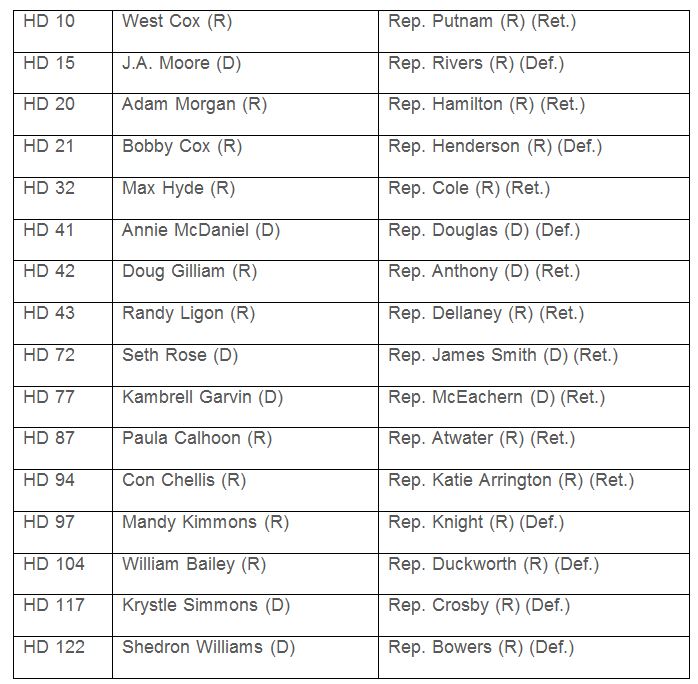As a result of the midterm elections in South Carolina, there will be changes on key committees in the General Assembly where most legislation of importance travels. The South Carolina State Senate was not up this cycle but it did have one special election for Senate District 20, which was vacated by incumbent Republican Senator John Courson, who retired from office under an ethics probe. Democratic candidate Dick Harpootlian defeated Republican candidate Benjamin Dunn, meaning the Senate now stands at 27 Republicans and 19 Democrats. This will result in the Democrats picking up one seat on either the powerful Senate Finance Committee or the Senate Judiciary Committee.
There will also be significant changes to committees in the S.C. House of Representatives, where a plethora of incumbents either retired or lost. The partisan makeup of the nine standing committees in the state House won’t change, as Republicans maintained their supermajority by a score of 80 to 44. But with 16 freshmen entering the House, lawmakers will be jockeying for spots on the Judiciary Committee, the Ways and Means Committee, and the Labor, Commerce and Industry (LCI) Committee. We will closely track these changes ahead of the official reorganization that takes place in December. Listed below are the newly elected freshman members of the House and the incumbents they replaced or defeated.

In the governor’s race, incumbent Republican Governor Henry McMaster easily defeated Democratic House Representative James Smith in a race that was never competitive. This will continue the GOP’s control over the South Carolina’s governor’s office for 20 consecutive years, with the last Democrat (Governor Jim Hodges) being elected in 2002. Governor McMaster did however have a hard-fought primary against Catherine Templeton (formerly with Governor Nikki Haley’s cabinet) and John Warren, a businessman who largely self-financed his campaign. With a strong endorsement from President Trump and two presidential visits close to the June 6 primary, Governor McMaster was able to hold off upstart John Warren, winning in the gubernatorial runoff by 7 percentage points.
Republicans swept the other seven statewide constitutional offices easily with all incumbents winning their elections, including Superintendent of Education Molly Spearman, Secretary of State Mark Hammond, Treasurer Curtis Loftis, Attorney General Alan Wilson, and Commissioner of Agriculture Hugh Weathers.
At the congressional level, the Republican Party lost the 1st District in a stunning upset of former S.C. House member Republican Katie Arrington by Democratic newcomer Joe Cunningham. It is the first time in 40 years that the Democrats have controlled the 1st Congressional District in South Carolina. Former Republican State Senator William Timmons won the 4th Congressional District, replacing retired Congressman Trey Gowdy. All other congressional districts remained the same, with Republicans maintaining a majority of seats by a score of 5 to 2.
There was one constitutional amendment on the statewide ballot: placing the currently elected position of superintendent of education under the governor as a cabinet position, thus becoming a gubernatorial appointment. This measure failed, with 58 percent of voters opposing it.
For more information, please contact me or your regular Parker Poe Consulting contact. You can also use the following links to find election takeaways for Georgia, North Carolina, and Washington, D.C.